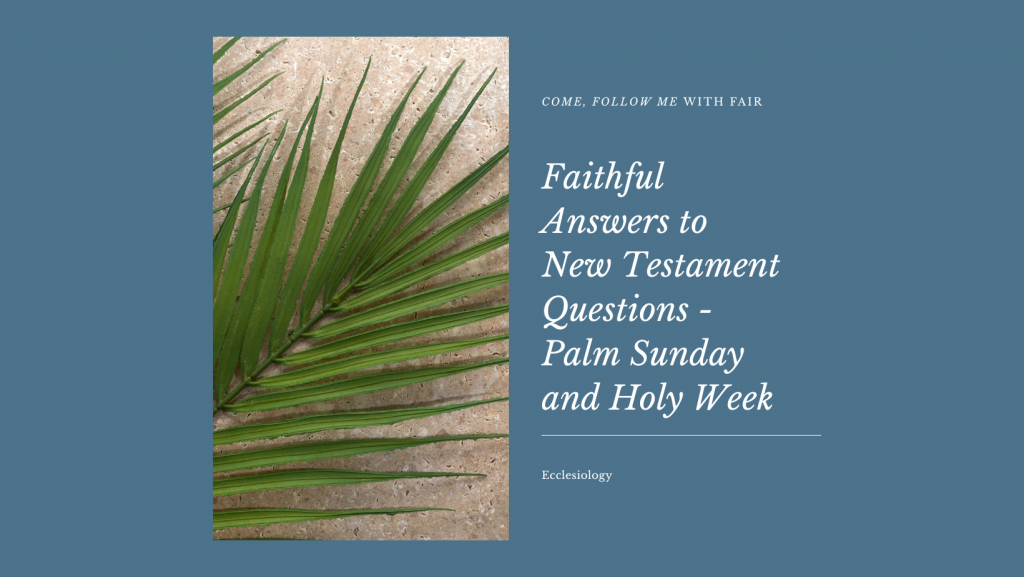"Behold, Thy King Cometh"
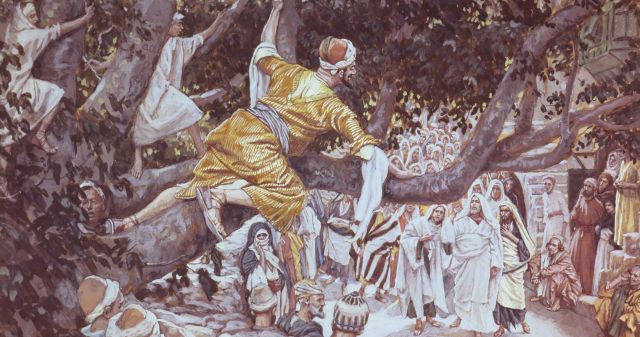
April 24–30

FAIR Faithful Resources for Come, Follow Me 2023 May 15–21. Matthew 21–23; Mark 11; Luke 19–20; John 12: “Behold, Thy King Cometh.” Find answers to difficult questions to help you in your learning and teaching. Here is a collection of reliable resources to supplement your study of Matthew 21–23; Mark 11; Luke 19–20; John 12. FAIR Resources link to relevant questions which have been answered on the FAIR website. Under Church Resources you’ll find links to the different Come, Follow Me manuals, as well as other helpful links as applicable. Other Resources link to resources outside of FAIR that are trustworthy and helpful.
Main points to ponder
The lesson observes: “When Jesus arrived at Jerusalem just days before He accomplished His Atonement, those who recognized Him as their King showed their devotion by anointing Him, putting clothes and palm branches along His path into Jerusalem, and shouting praises.” As you study this week, consider what you might do to better recognize Jesus as your King. These scriptures may offer insight:
As you ponder how you personally can honor the Savior and receive him as your Lord and King, these resources may prove useful:
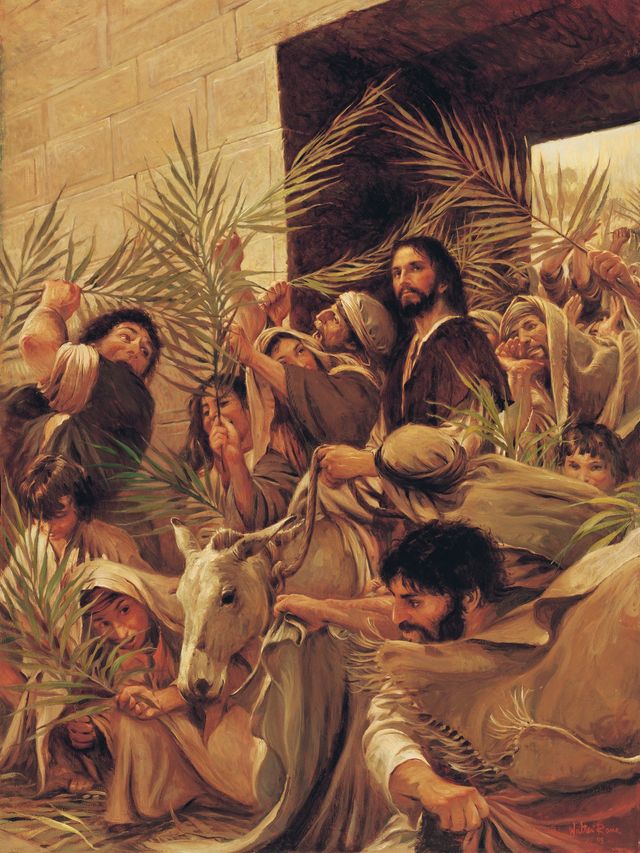
Faithful Resources on the FAIR website:
- Question: Was the priesthood held by Jesus priesthood not ‘transferable’ to members of the Church?
- Question: Does Jesus Christ’s statement “they neither marry, nor are given in marriage” contradict the Latter-day Saint doctrine of eternal marriage?
- Charles W. Penrose (1911): Jesus “was speaking of the class of people to whom the Sadducees referred. Under the law of Moses marriage for eternity was not celebrated…the marriages under consideration were for time only
- Joseph Fielding Smith (1941): While the Church, as well as the world, would recognize that marriage while they are in the world, yet the fact remains that when they are dead the marriage comes to an end
- Joseph Fielding Smith (1951): Jesus “says unto those who are married for time only, and those who do not believe in marriage for eternity”
- Question: Are Elohim and Jehovah the same deity?
- Question: What do Mormons believe regarding the nature of angels?
- Is Logical Thinking Compatible with Spiritual Thinking?
- Question: Are there not supposed to be any more prophets after Christ’s day?
- Changing ideas about moral agency and human freedom
- The Nature of Prophets and Prophecy
- Question: Do the scriptures promote racism?
- Putting Doubt in Perspective
- Question: What scriptures explain the Latter-day Saint view of Jesus’ divine Sonship?
Resources on the Church website:
Come, Follow Me—For Individuals and Families
Come, Follow Me—For Sunday School
The Lord’s Triumphal Entry into Jerusalem (Matthew 21:1-11)
Christ’s Authority is Questioned (Matt 21:23-32)
Render unto Caesar and unto God (Mark 12:13-17)
The Greatest Commandment (Mark 12:28-34)
Jesus Teaches about the Widow’s Mites (Mark 12:41-44)
Faithful Resources from other reliable websites:
- Come, Follow Me Study and Teaching Helps — Lesson 21: May 15–21, Jonn Claybaugh
- The New Testament in Context: Come, Follow Me Lesson 21
- Audio Roundtable: Come, Follow Me New Testament Lesson 20
- Cursing the Fig Tree, Hales Swift
- Jesus Discusses Paying Tribute in Matthew 22, Hales Swift
- Scripture Roundtable: New Testament Gospel Doctrine Lesson 20, “Woe unto You, … Hypocrites”
- Names of the Parables, Thomas A. Wayment
- Jesus’ Use of the Psalms in Matthew, Frank F. Judd Jr.
- The Great Commandment: Principle or Platitude?, Howard A. Christy
- The Savior’s Questions: Teachings from the Last Week of His Life, Rick B. Jorgensen
- The Confusing Case of Zacharias, Lynne Hilton Wilson
- Come Follow Me – Matthew 21-23; Mark 11; Luke 19-20, Book of Mormon Central Archive
- Parable of the Laborers in the Vineyard, Messages of Christ
- Our Savior in the Gospels: The Triumphal Entry
- Our Savior in the Gospels: The Long Day of Debate
- Come Follow Me 2019: Matthew 21-23; Mark 11; Luke 19-20; John 12, Book of Mormon Central
- Matthew 21—23; Mark 11; Luke 19—20; John 12, BYU Studies
- Tyler Griffin & Taylor Halverson PART 1 | Matthew 21–23; Mark 11; Luke 19–20; John 12 | May 15 – May 21 | Come Follow Me Insights
- Tyler Griffin & Taylor Halverson PART 2 | Matthew 21–23; Mark 11; Luke 19–20; John 12 | May 15 – May 21 | Come Follow Me Insights
- Lynne Hilton Wilson Matt 21-23, Mark 11, Luke 19-20, John 12: New Testament with Lynne Wilson (Come, Follow Me)
- John Hilton III The Triumphal Entry , Hypocrisy: A Fig Tree and Temple Cleansing Sandwich ,
- Jesus and The Christus Victor Aspect of the Savior’s Atonement, Jesus and the Chief Priests
- The Scriptures Are Real (Muhlestein) Sam Millburn, What Lack I Yet and Mother’s Day (week of May 8, only episode)
- FollowHIM (Smith & Bytheway) Dr. Keith J. Wilson “BEHOLD , THY KING COMETH” Part 1, Part 2, Youth
Dig deeper:
- John 12:42–43.What social consequences discouraging us from defending our belief in Christ?
- Daniel 1:3–20; 3; 6; John 7:45–53; 9:1–38; and Mosiah 17:1–4
- John 12:1–8. How does Mary’s example of showing her love to the Lord help us know how to express our love to Him?
- Matthew 22:34–40. In these times of perfectionism and overwhelm, how could focusing on the two great commandments help you keep focus?


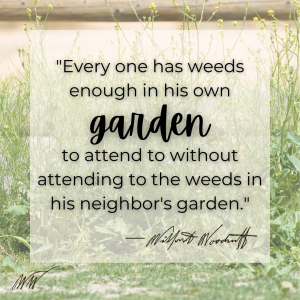

Erin B. Hills is a Senior Research Assistant with the Wilford Woodruff Papers Project and a graduate of Brigham Young University–Idaho. Erin loves learning about the life of Wilford Woodruff and happily shares all her favorite stories with her family and friends. She lives with her husband and five children in Virginia.
Lot Smith
A lawyer asked Jesus, “Master, which is the great commandment in the law?” Jesus responded, “Thou shalt love the Lord thy God with all thy heart, and with all thy soul, and with all thy mind. This is the first and great commandment. And the second is like unto it, Thou shalt love thy neighbor as thyself. On these two commandments hang all the law and the prophets.”1
Because all of us are imperfect, these commandments can be one of the greatest challenges we face in life.
In 1887, Wilford was informed that a man named Lot Smith had been treated unfairly during the settlement of a community in Arizona that practiced living the United Order.2 Lot Smith was not a perfect man. In multiple letters written to address the matter, Wilford revealed that Lot was “abusive at times to his wives, children and friends.”3 That his “course with men [was] not calculated to gain friendship.”4 And that “he has some imperfections, and some he ought to get rid of.”5
What would our response be to a man that fits this description? It seems that Lot Smith was a difficult man to serve with, and that is probably why the committee, which was organized to make the settlement, treated him unfairly. It is hard to show love to someone who makes life hard for others.
But Wilford’s response was full of love, revealing the way we need to treat one another.
We need to sustain one another in our callings.
Wilford stated that Lot Smith had been sent to Arizona by President Brigham Young “to establish and carry out the United Order.”6 He said Lot did the best he could, and this was reason enough to sustain him. Wilford wrote, “I was with him two years and I am satisfied he did more work than any two men in the order.”7
Sometimes befriending someone is just the right thing to do.
He wrote that Lot seemed to have but few friends and “there [was] great prejudice against him from persons in high places.” Rather than join in the prejudice, Wilford said he “befriended [Lot] from principle.”8 He also said “that a man, that has gone through what he has from his youth up for the Church and Kingdom of God, ought not to be crushed unjustly.”9
We should remember that we are all imperfect.
Wilford acknowledged that Lot needed to get rid of some imperfections. But then he said, “as well as the rest of us.”10 None of us are perfect. The commandment, “Be ye therefore perfect, even as your Father which is in heaven is perfect,” is a commandment of refinement.11 Daily repentance is daily change. We need to be patient with our neighbors as they work on their imperfections. We may need to be patient for a long time! It might take someone a while to even see that they need to change. Meanwhile, the commandment remains unchanged. Love your neighbor as yourself.
Endnotes
- Matthew 22:36–40.
- Letter to David K. Udall, September 17, 1887, p. 1, The Wilford Woodruff Papers, wilfordwoodruffpapers.org/letter/1887-09-17.
- Letter to John Bushman, November 25, 1887, p. 1, The Wilford Woodruff Papers, wilfordwoodruffpapers.org/letter/1887-11-25.
- Letter to John Bushman, November 25, 1887, p. 2.
- Letter to Bushman, September 17, 1887, p. 3, The Wilford Woodruff Papers, wilfordwoodruffpapers.org/letter/1887-09-17.
- Letter to John Bushman, November 25, 1887, p. 2.
- Letter to Bushman, September 17, 1887, p. 2.
- Letter to John Bushman, November 25, 1887, p. 1.
- Letter to Bushman, September 17, 1887, p. 2.
- Letter to Bushman, September 17, 1887, p. 3.
- Matthew 5:48.
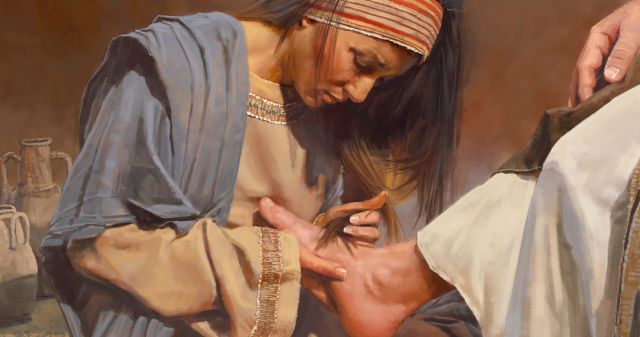
Faithful Resources, and Faithful Resources. Also, Faithful Resources therefore Faithful Resources. But without Faithful Resources you’ll need Faithful Resources; because Faithful Resources help. Twelve apostles give Faithful Resources, therefore Faithful Resources abound. Since Faithful Resources at Faithful Resources then Faithful Resources because Faithful. Resources at Faithful Resources as Faithful Resources are Faithful Resources therefore Faithful Resources. Again, Faithful Resources Faithful Resources Faithful Resources Faithful Resources Faithful Resources Faithful Resources Faithful Resources. Since Faithful Resources then Faithful Resources.
